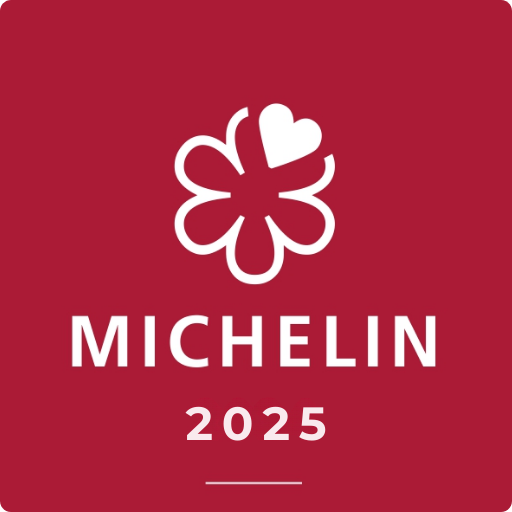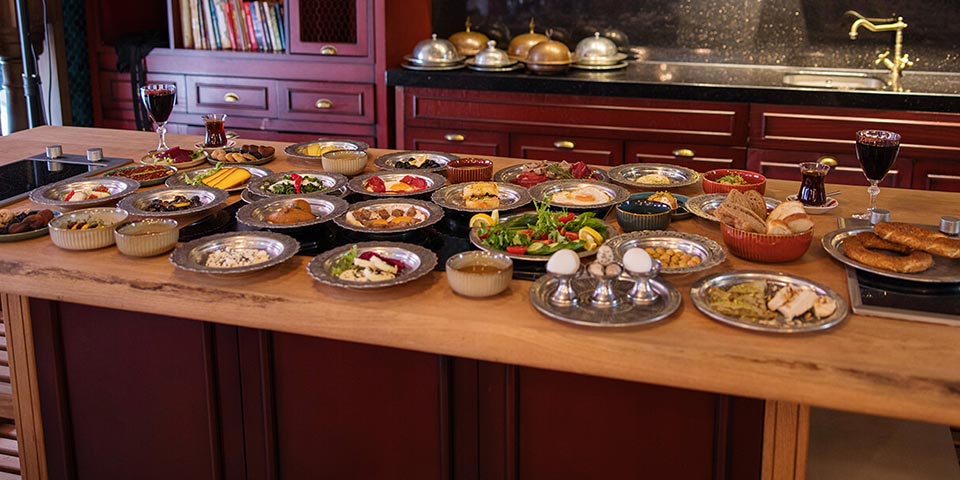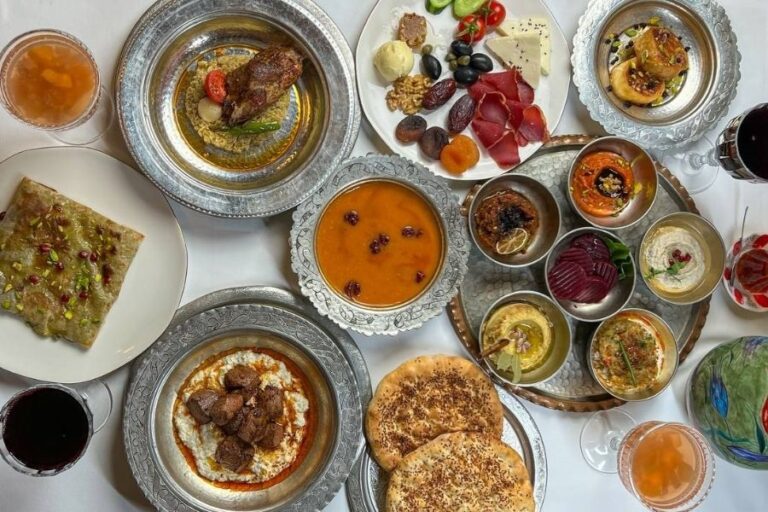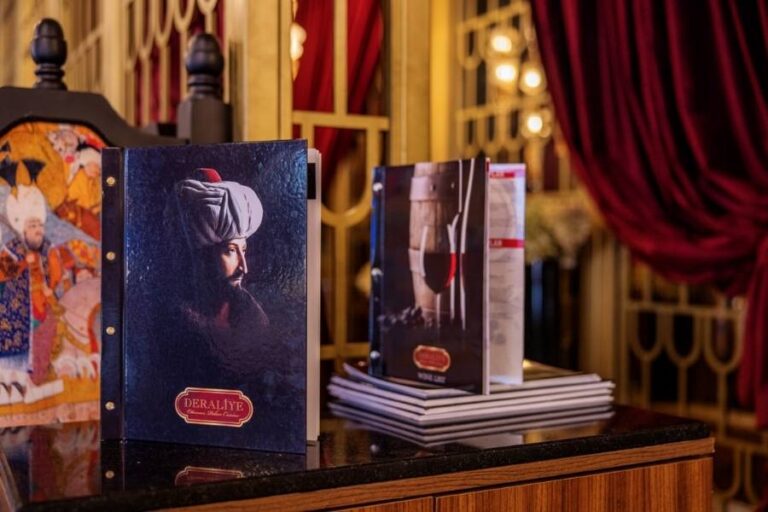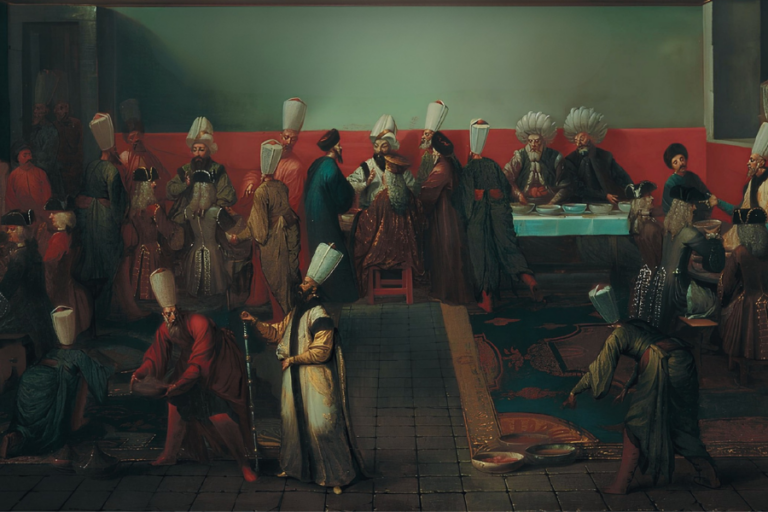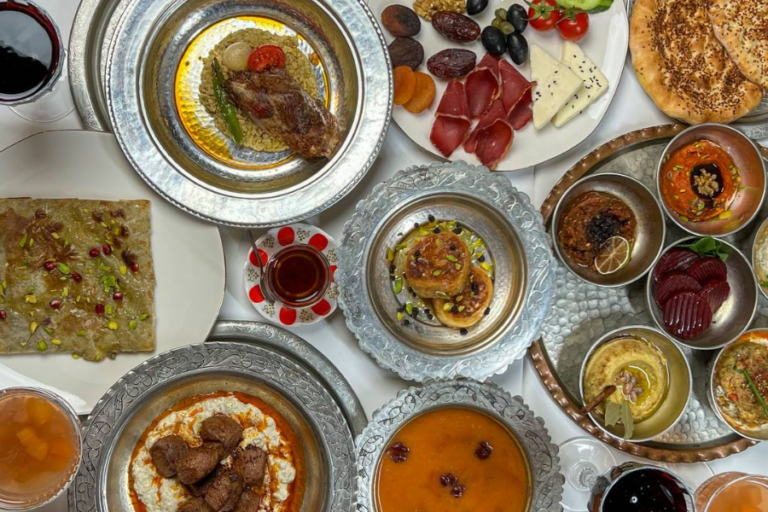Being a Palace in Istanbul, a Matbah in a Palace, and a Tabbah in a Matbah. (Tabbah means ‘chef’ in Ottoman Turkish.)
Istanbul, the magnificent city where the world has been ruled for centuries; and Topkapi Palace, the symbol of power, wealth, pomp and grandeur, right in the heart of Istanbul.
And the sultans, concubines, lalas, princes, aghas, pashas living in the palace… Dozens, even hundreds of employees. To be the center of the world, to hold power, power and wealth. What a great organization, isn’t it?
After the Ottoman Empire, many valuable historians, writers, archaeologists, historians and social scientists researched the civilization that ruled the world with its greatness, made films and wrote books.
Dozens of researches from architecture to music, language to lifestyle…
What comes to mind when we think of “palace”, right?
Well, have you ever thought about what to eat and drink in the palace? Which dishes were cooked at weddings, circumcision festivities, Ramadan evenings and invitations?
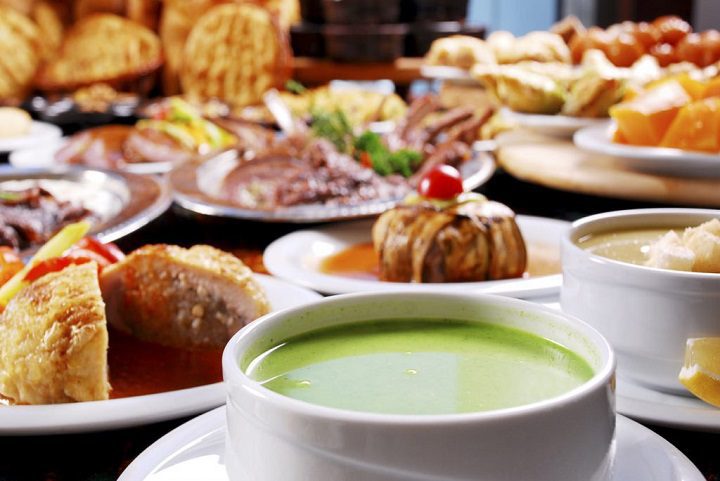
At this point, it is necessary to search the archives and the books written in that period and find the dishes of the period in order to reveal a historical reality.
We’ve done this research for about 10 years. Well-kept archives were scanned, and the names of the dishes were found and noted in their simplest form, according to the records in the archives.
Interestingly, not all of the dishes mentioned in the documents have survived. This is what bothered us the most.
In order to find these recipes and to be able to cook them again in the kitchens, we consulted the cookbooks of the researched dates.
At this point, the scent of cinnamon, the color of saffron, and the crunch of almond emerged.
Finally, we were able to reach the recipes we wanted. As a result of years of work, we have created the Ottoman Palace Cuisine food concept, which we have adapted to today’s nutrition and taste.
We invite you to taste the hidden flavor heritage of the palace at Deraliye Ottoman Cuisine.
Our Sources: Muhammed bin Mahmud Shirvani, Ibn-i Batuta, Mehmet Kamil – Melceü’t-Tabbahin
Marianna Yarasimos, Stafanoz Yarasimos, Gunay Kut, Turgut Kut, Tugrul Savkay, Süheyl Unver, Nevin Halıcı, Arif Bilgin.
